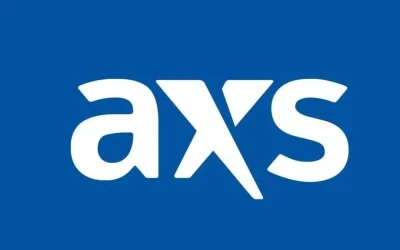Live Nation Entertainment trumpeted its $1 billion plan to build or overhaul 18 concert venues across the United States over the next 18 months in a press release issued this week, betting that demand for live music will keep climbing while fans look for shows closer to home.
The promotion of its ongoing projects issued Tuesday included spans clubs, theaters and large outdoor amphitheaters in markets that often sit outside the traditional major‐tour circuit, including Allentown, Pennsylvania; Birmingham, Alabama; Riverside, Missouri; and Shakopee, Minnesota. Larger population centers such as Atlanta, Denver and Seattle are also on the list.
Many of the projects had been previously announced individually, and in several instances, have been actively resisted by communities targeted by the corporate giant’s expansion plans.
Live Nation projects the build‑out will generate $2.9 billion in direct economic activity tied to construction and another $1.4 billion in annual spending once the venues are operating, citing estimates from Oxford Economics.
“Our mission is simple: help artists deliver more unforgettable live experiences — and in doing so, create jobs, revive cities and lift up the communities we touch,” chief executive Michael Rapino said in a statement.
Economic tailwind — and political backdrop
The company’s expansion plan arrives amid what Rapino has called “our biggest year of live music ever.” Live Nation says it has already hired 37,000 U.S. workers for the 2025 season and touted its recent offering of what it says was more than 1 million $30 tickets to summer shows.
It also comes in the wake significant efforts on the part of Live Nation to cosy up to President Donald Trump, whose justice department is currently suing it in federal court as an illegal monopoly – a lawsuit begun under President Biden’s DOJ – including its recent appointment of a key Trump ally to its Board of Directors. That move has been slammed by many as nakedly “transactional” in nature and designed to buy the company’s favor with the administration.
FURTHER READING: Live Nation’s Trump-Allied Board Pick Draws Sharp Backlash
In its announcement, it pointed to a March 31 executive order signed by President Donald Trump, which directed federal authorities to improve enforcement of the federal BOTS Act, enforce price transparency (through the FTC rule brought by Biden’s administration that went live in May), and evaluate the impact of allegedly deceptive practices taking place on resale marketplaces. It seems keen to push this narrative in hopes of eliminating scrutiny over its own business practices and their impact on surging prices.
Filling gaps on the map
Live Nation owns or operates about 150 venues nationwide — roughly 4 percent of the total, by its count — but says most of the nearly 6,000 club and theater shows it promoted in 2024 took place in third‑party buildings. By adding brick‑and‑mortar locations in mid‑sized markets, the promoter hopes to shorten travel times for fans and create new routing options for artists.
Cities and civic leaders have welcomed the plans:
- Riverside, Missouri: Mayor Kathy Rose said the coming Riverside Amphitheater “will elevate the area’s concert scene to new heights,” adding that the venue will attract visitors from around the Kansas City metro area.
- Memphis, Tennessee: Mayor Paul Young called Satellite Music Hall “really, really important for our city” as part of broader downtown revitalization efforts.
- New York City: Mayor Eric Adams hailed the reopening of Brooklyn Paramount as evidence that the city “remains the cultural capital of the world.”
Live Nation says it spent $14 billion on artist guarantees in 2024, more than triple its 2016 outlay. The company worked with 13,000 touring acts last year and supported more than 9,000 developing performers through its “On The Road Again” initiative, which allows artists to keep 100 percent of merchandise revenue at participating venues.
Pushback to Live Nation in Multiple Cities
Many communities have actually seen significant fights over Live Nation’s plans to build or take over venues. In Portland, Oregon, there has been a monthslong effort to keep the corporate giant out of the city.
“[It] would be a death sentence for the music scene,” says Colescott Rubin, a jazz bassist who got his start busking on streets and booking shows in Portland as a teen. Thanks to Portland’s independence, he says, “you can talk with the people who are calling the shots on the spaces you’ll be performing in directly.” The arrival of Live Nation, he and others in the city’s music scene fear, would send Portland the way of cities such as Austin and Boston, where independent venues have shuttered and local journalists and musicians have lamented the corporatization of scenes that once felt organic and unstoppable.
The local arts scene has similarly resisted Live Nation’s efforts to take over in Portland, Maine on the opposite coast.
“I don’t think that Portland is lacking culturally, and I don’t think the solution is corporate art building,” the executive director of Blue Portland said, accusing Live Nation of siphoning audiences from homegrown arts spaces. “If you really stand by your statement on bringing the arts and giving us something we lack, give us the money we’re desperately trying to make.”
What’s next
Groundbreakings or ribbon‑cuttings on the 18 projects are scheduled through late 2026. While full lineups have yet to be announced, Live Nation indicated that each building will be designed with modern production capabilities and flexible layouts, features that help attract tours ranging from club dates to festival‑style outdoor shows.
For consumers, the near‑term impact is straightforward: more concerts within driving distance and, potentially, more affordable tickets as supply increases. For the live business, Live Nation’s wager underscores confidence that the post‑pandemic surge in demand for shared experiences is far from over, and that its cosying up to the current regime will smooth over its major antitrust risks.



